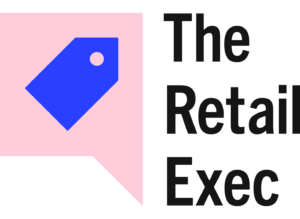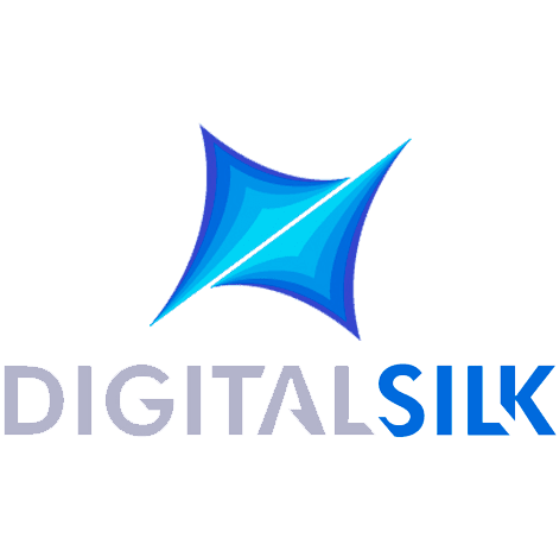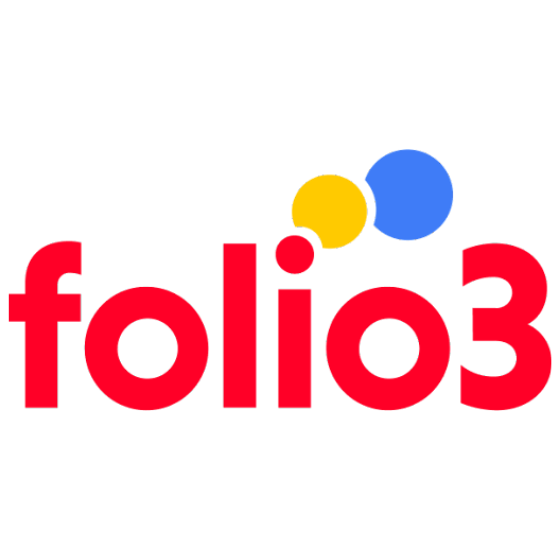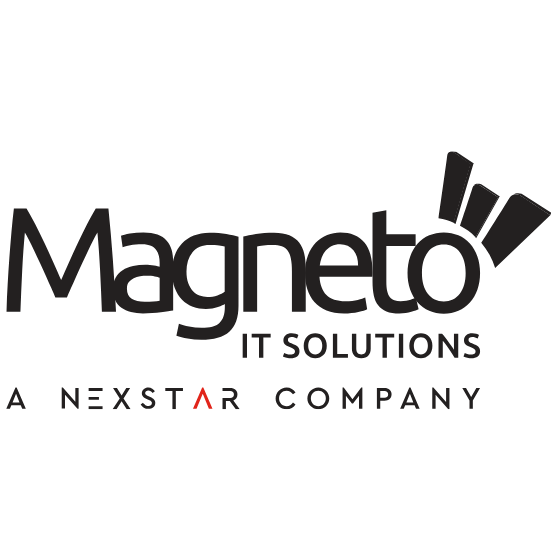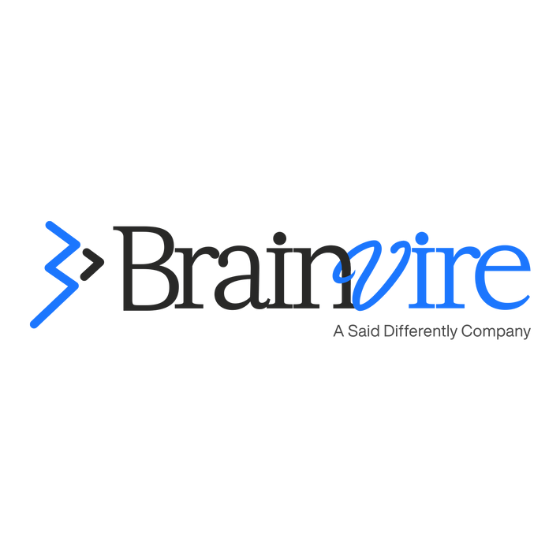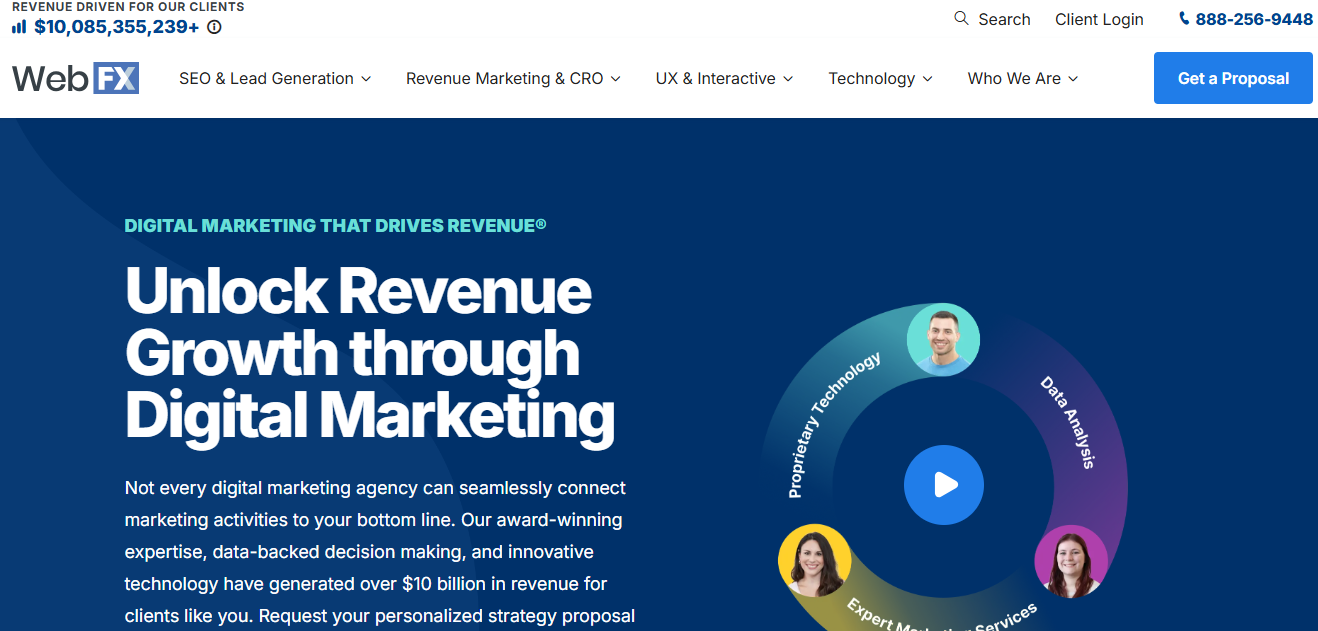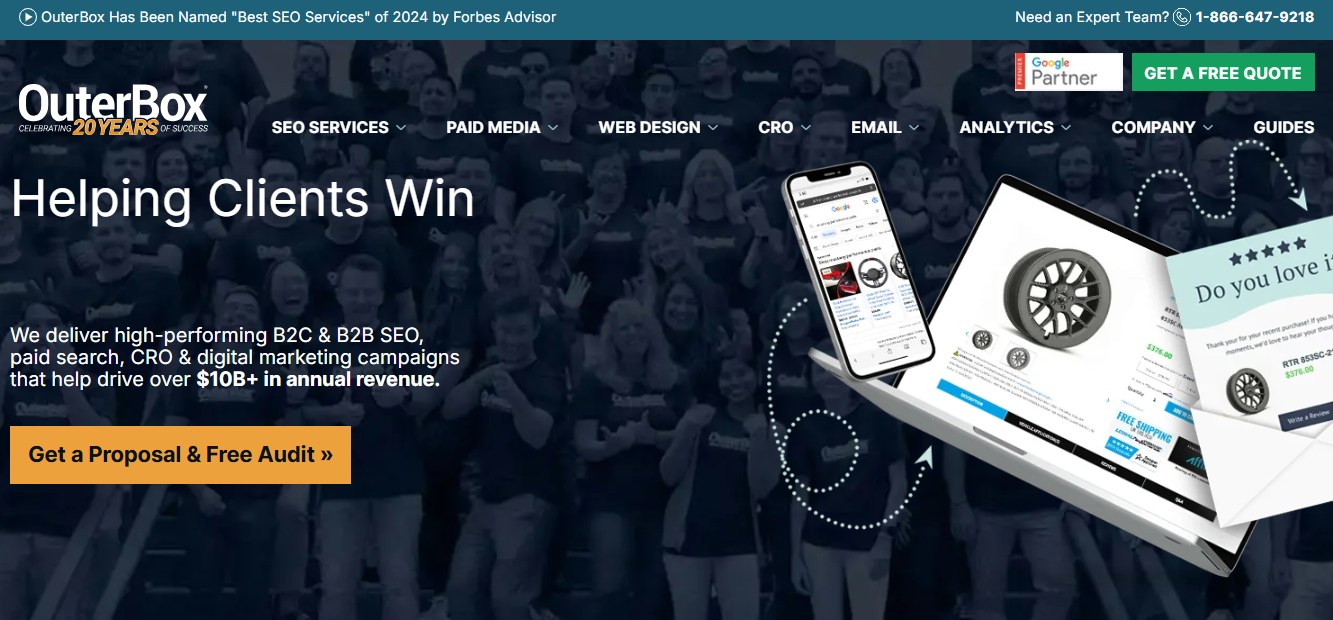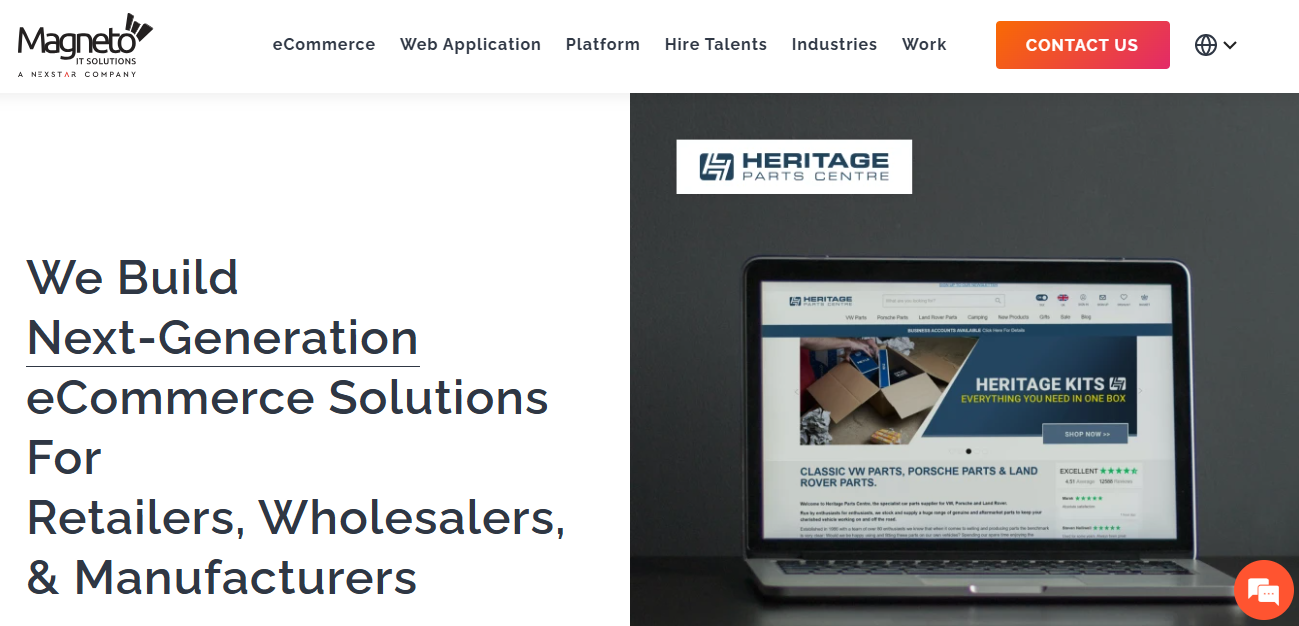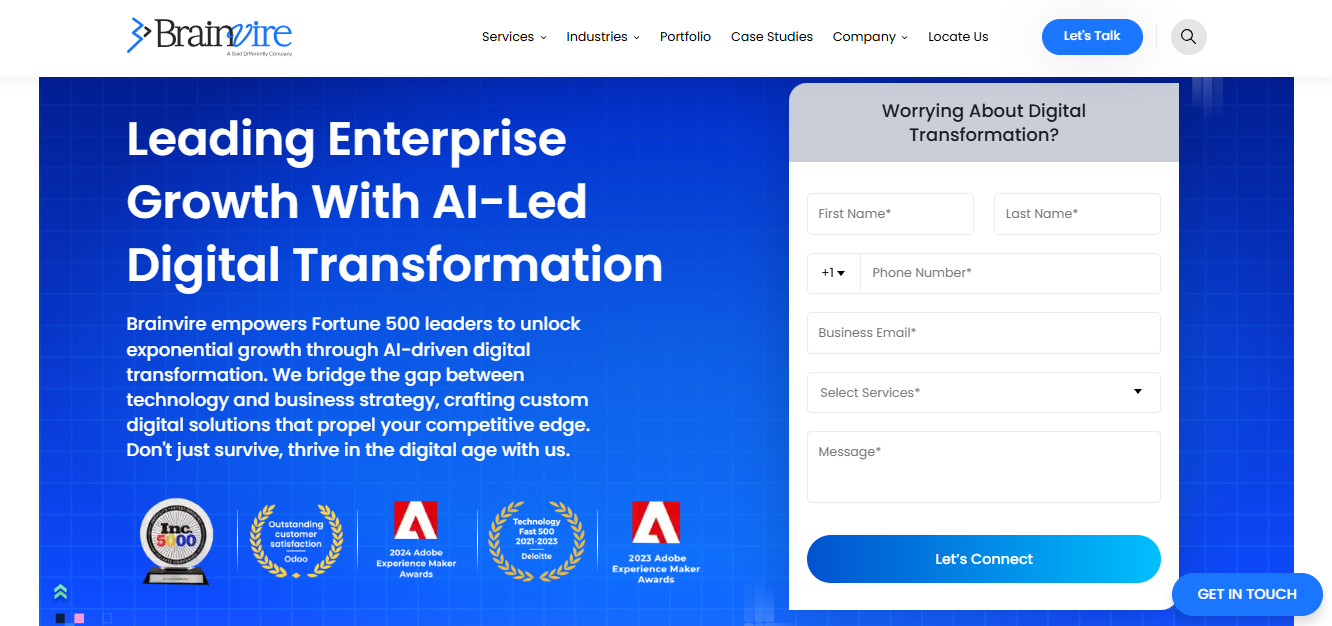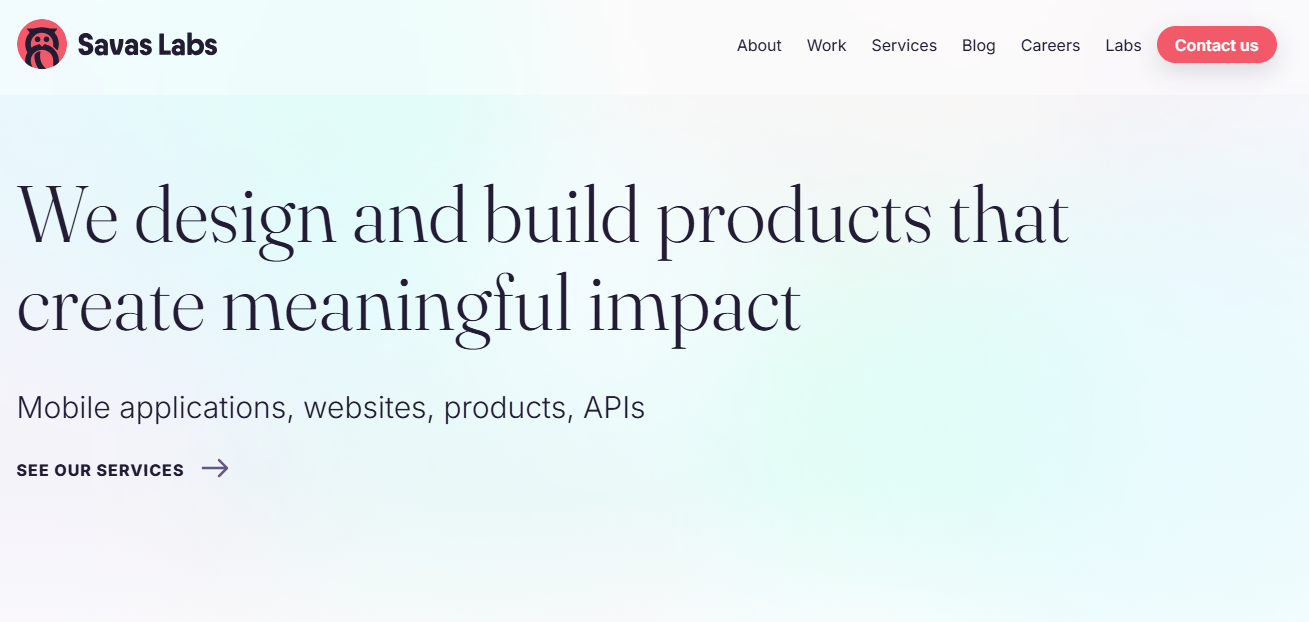The Top 10 Ecommerce Website Design and Development Companies
Now the leaderboard for the best ecommerce website design and development companies and what they are best at:
Get free help from our service advisors to find your match.
The best ecommerce website design and development companies build custom storefronts, link to your back-end systems, and optimize every click so you can squash slow loading pages, fix checkout glitches, and stop manually reconciling orders in spreadsheets.
You’re here because your current setup is leaking revenue: shoppers bail on a slow cart, payments fail without warning, and every sale triggers a round of Excel copy-pasting.
You need a partner who knows payment gateways inside out, designs UX flows that nudge buyers forward, and configures servers to survive traffic spikes.
I’ve worked on dozens of ecommerce launches and redesigns on Shopify, WooCommerce, and headless platforms. In this guide, you’ll find firms vetted for technical chops, strategic vision, and rock-solid support—so you can focus on growth, not firefighting.
Why Trust Our Reviews
We’ve been testing and reviewing ecommerce and retail software and services since 2021.
As retail experts ourselves, we know how critical and difficult it is to make the right decision when selecting a provider. We invest in deep research to help our audience make better purchasing decisions.
We’ve tested more than 2,000 tools and hundreds of service providers for different ecommerce management use cases, and written over 1,000 comprehensive reviews. Learn how we stay transparent & check out our review methodology.
Comparing the Best Ecommerce Website Design and Development Companies, Side-by-Side
Let’s see these top agencies side by side, with pricing, consultation details, and use cases laid out.
| Service | Best For | Trial Info | Price | ||
|---|---|---|---|---|---|
| 1 | Best for digital marketing focus | Discovery calls available for new clients | From $16000 to $26500 | Website | |
| 2 | Best for SEO integration | Free discovery call available | Pricing upon request | Website | |
| 3 | Best for creative branding | Free consultations and quotes available | Pricing upon request | Website | |
| 4 | Best for mobile app development | Free consultations and quotes available | Pricing upon request | Website | |
| 5 | Best for custom software | Free initial consultation and project assessment | Pricing upon request | Website | |
| 6 | Best for B2B platforms | Free consultations and project evaluations available | Pricing upon request | Website | |
| 7 | Best for enterprise solutions | Free consultation available | Pricing upon request | Website | |
| 8 | Best for Shopify stores | Free consultations and project assessments available | Pricing upon request | Website | |
| 9 | Best for Drupal projects | Free consultations and project assessments available | Pricing upon request | Website | |
| 10 | Best for Magento expertise | Free consultations and project evaluations available | Pricing upon request | Website |
The 10 Best Ecommerce Website Design & Development Companies, Reviewed
Below are my detailed summaries of the best ecommerce website design and development companies that made it onto my shortlist. My reviews offer a look at each provider’s key services, unique specialties, and pros & cons to help you find the best one for your needs.
In addition to Shopify ecommerce development services, WebFX offers digital marketing services including SEO, PPC management, and social media advertising to enhance online presence and drive revenue. Their main clients are businesses looking for data-driven marketing strategies to increase sales and improve online visibility.
Why I picked WebFX: WebFX excels at digital marketing with a focus on driving measurable results. Their proprietary platform, MarketingCloudFX, provides data-driven insights that optimize marketing strategies. The use of advanced technology and proven methods enables your team to enhance online visibility and achieve revenue growth.
Standout Services: With SEO, your team can boost search engine rankings and increase organic traffic, addressing the challenge of visibility in competitive markets. PPC management offers targeted advertising solutions, allowing you to reach potential customers effectively and maximize return on investment.
Target industries: Ecommerce, healthcare, finance, education, and manufacturing.
Specialties: SEO, PPC management, social media advertising, conversion rate optimization, and content marketing.
Pros and cons
Pros:
- Data-driven strategies for ecommerce marketing
- Wide range of services available from the same provider
- Customized marketing plans and strong focus on ROI
Cons:
- Can be complex for small businesses
- May be more marketing-focused than dev-focused
OuterBox offers a range of services, including ecommerce SEO and website design. Their focus on digital marketing strategies helps clients enhance their online presence and drive revenue growth. They primarily serve ecommerce and B2B clients, providing tailored solutions to meet specific industry needs.
Why I picked OuterBox: OuterBox focuses on integrating effective SEO strategies in their ecommerce website development services. They offer specialized services like ecommerce SEO and Google Ads management, ensuring your website ranks higher and attracts more traffic. Their data-driven approach helps you achieve measurable results and optimize online performance.
Standout Services: With ecommerce SEO, your team can enhance website visibility and drive more traffic, addressing the challenge of increasing online sales. Google Ads management offers a targeted approach to advertising, helping you reach potential customers effectively and improve conversion rates.
Target industries: Ecommerce, healthcare, B2B, manufacturing, and retail.
Specialties: Ecommerce SEO, PPC management, email marketing, website design, and data-driven strategies.
Pros and cons
Pros:
- Wide range of services from the same provider
- Free consultation options to assess their offer
- Expert team support with data-driven approach
Cons:
- May require long-term contracts
- Complexity for small businesses
Digital Silk provides custom web design, branding, and digital marketing services, focusing on enhancing user engagement and driving conversions. They primarily serve industries like healthcare, finance, law, real estate, and ecommerce, offering tailored solutions for businesses looking to improve their online presence.
Why I picked Digital Silk: The agency excels in creative branding, which is reflected in its emphasis on custom web design and integrated marketing strategies. Their services in UX/UI design and branding help you create a distinctive brand identity that’s represented across your ecommerce store. By focusing on user-centric design, they ensure that your brand engages effectively with your target audience.
Standout Services: With UX/UI design, your team can create intuitive and engaging user experiences, addressing the challenge of retaining website visitors. Ecommerce development provides tailored solutions to build and optimize online stores, ensuring smooth transactions and improved customer satisfaction.
Target industries: Healthcare, finance, law, real estate, and ecommerce.
Specialties: UX/UI design, SEO, social media marketing, branding, and ecommerce solutions.
Pros and cons
Pros:
- Comprehensive service from strategy to post-launch support
- Expert user experience design for customer engagement
- Strong portfolio with proven cross-industry success
Cons:
- Best suited for mid-to-large enterprise projects
- Complex processes may exceed simpler project requirements
Folio3 offers end-to-end ecommerce solutions, including ecommerce website development, mobile app development, and digital marketing services. It caters to ecommerce businesses seeking to enhance their online presence and improve customer engagement through advanced technological solutions.
Why I picked Folio3: Specializing in mobile app development, Folio3 provides tailored solutions that cater to your specific business needs. Their expertise in developing cross-platform mobile applications ensures your business can reach a wider audience. With a focus on user-friendly design, they help your team engage customers effectively across multiple devices.
Standout Services: With cross-platform mobile app development, your team can create apps that work on various devices, addressing the challenge of reaching diverse audiences. Digital marketing services enhance your online presence through targeted strategies, helping you attract and retain customers effectively.
Target industries: Retail, healthcare, finance, manufacturing, and education.
Specialties: Mobile app development, ecommerce solutions, digital marketing, cloud integration, and ERP systems.
Pros and cons
Pros:
- Strong focus on user experience and innovative design
- Experience handling complex integrations and migrations
- Cross-platform development expertise
Cons:
- Limited flexibility for project scaling or customization
- Focused mainly on full-service packages
Dedicated Developers offers custom software development, mobile app development, and web design services tailored to meet specific business needs. Their development experts work with a diverse client base, including startups and established businesses looking for innovative digital solutions.
Why I picked Dedicated Developers: Dedicated Developers excel in custom software development, which allows your team to create unique applications that fit your specific business processes without specialized backend development knowledge. Their expertise includes mobile app development, and providing flexible solutions that enhance user engagement. By focusing on innovation and customization, they help you address complex business challenges effectively.
Standout Services: With mobile app development, your team can create user-friendly applications that enhance customer engagement and operational efficiency. Web design services offer visually appealing and functional websites that help improve your brand’s online presence and user experience.
Target industries: Technology, healthcare, finance, retail, and education.
Specialties: Custom software development, mobile app development, web design, AI solutions, and cloud computing.
Pros and cons
Pros:
- Access to global top-tier tech talent and niche expertise
- Flexible scaling options to align with project demands
- Transparent project management with client control over workflow
Cons:
- Integration with existing business operations may require effort
- Recruitment for dedicated teams can take time
Magneto IT Solutions offers ecommerce site development, mobile app development, and digital marketing services, focusing on creating tailored solutions for businesses. They serve a diverse client base, including B2B enterprises looking to enhance their digital presence and operational efficiency.
Why I picked Magneto IT Solutions: This ecommerce website development company excels in building B2B ecommerce platforms that cater to complex business needs. Their expertise in custom ecommerce solutions helps your team implement features tailored to your specific industry requirements. With a commitment to innovation and quality, they support your business in achieving operational success and growth.
Standout Services: With custom ecommerce development, your team can create platforms that address unique business needs and improve customer interactions. Mobile app development provides solutions to enhance user engagement and streamline business operations, ensuring your team can adapt to market changes.
Target industries: Retail, healthcare, finance, manufacturing, and technology.
Specialties: B2B ecommerce, mobile app development, digital marketing, custom software solutions, and AI integration.
Pros and cons
Pros:
- Strong focus on understanding client industries and needs
- Technically robust and customized ecommerce solutions
- Responsive project management and milestone-based tracking
Cons:
- Limited ongoing support and training services
- Hosting demands may require high-performance servers
Brainvire offers services in digital transformation, IT consulting, and product development, catering primarily to enterprises seeking advanced technological solutions. They serve key business functions like ecommerce web development, enterprise mobility, and cloud services for large-scale businesses and organizations.
Why I picked Brainvire: Brainvire focuses on delivering enterprise solutions, providing advanced technology services like AI and IoT integration. Their expertise in custom software development helps your team address complex business challenges. With a strong emphasis on digital transformation, they support your business in staying competitive in a rapidly evolving market.
Standout Services: With AI integration, your team can leverage machine learning to automate processes and improve decision-making, addressing the challenge of efficiency in large-scale operations. IoT solutions provide connectivity between devices, enhancing data collection and analysis to inform strategic business decisions.
Target industries: Retail, healthcare, finance, education, and manufacturing.
Specialties: AI integration, IoT solutions, custom software development, digital transformation, and cloud services.
Pros and cons
Pros:
- Advanced use of AI for enhanced personalization
- Strong customer support with proactive communication
- Proven track record across industries and project types
Cons:
- Long timelines possible for larger or custom projects
- Heavy focus on enterprise, less tailored for small businesses
Ziggle Tech specializes in ecommerce solutions, digital transformation, and cloud services, focusing on enhancing business operations and customer engagement. They primarily serve small to medium-sized businesses seeking to optimize their online presence and improve digital workflows.
Why I picked Ziggle Tech: When it comes to ecommerce projects, Ziggle Tech is known for its expertise in Shopify store development, providing tailored solutions that align with your business goals. Their team offers comprehensive design and development services to create and optimize your Shopify store. With a focus on scalability and user experience, they help your team maximize conversion rates and customer satisfaction.
Standout Services: With Shopify development, your team can build and optimize an online store that meets your business needs, addressing the challenge of creating a scalable and user-friendly platform. Cloud services provide reliable infrastructure solutions, ensuring your business operations run smoothly and efficiently.
Target industries: Retail, fashion, technology, healthcare, and finance.
Specialties: Shopify development, digital transformation, cloud services, ecommerce solutions, and UX/UI design.
Pros and cons
Pros:
- Strong focus on user-centric design and digital strategy
- Proven success in enhancing website performance
- Proactive project management with an adaptive approach
Cons:
- Less specialized for very large-scale projects
- Primarily known for broader digital transformation projects
Savas Labs offers ecommerce web design, development, and strategy services, focusing on crafting meaningful experiences for their clients. They primarily work with organizations seeking to improve their digital presence and user interaction through customized solutions.
Why I picked Savas Labs: Savas Labs specializes in Drupal projects, providing expertise in developing and maintaining complex Drupal-based websites. Their approach emphasizes collaboration and transparency, ensuring your team is involved throughout the process. By focusing on open-source solutions, they help you achieve flexibility and scalability in your digital platforms.
Standout Services: With Drupal development, your team can build and maintain robust websites that support complex content management needs, addressing the challenge of scalability. Web strategy consulting helps you align your digital initiatives with business goals, ensuring effective use of technology and resources.
Target industries: Nonprofits, education, healthcare, government, and technology.
Specialties: Drupal development, web design, digital strategy, UX/UI design, and open-source solutions.
Pros and cons
Pros:
- Strong communication and project management
- Collaborative, client-focused approach
- Agile development process, adaptable to project changes
Cons:
- Limited focus on rapid, large-scale projects
- Potential for slower onboarding due to thorough planning
StageBit provides custom ecommerce website design and development services, focusing on platforms like Magento, Shopify, and WordPress. The ecommerce development company serves businesses looking for tailored, high-quality web and mobile app solutions to enhance their online presence.
Why I picked StageBit: StageBit specializes in Magento development and offers expertise in upgrading and optimizing this platform for your business needs. Their team of certified developers ensures efficient and effective solutions. With a focus on cost-effective services and client satisfaction, they help your team improve sales conversions and usability.
Standout Services: With Magento development, your team can enhance your ecommerce platform’s performance, addressing the need for a scalable and efficient online store. Custom Shopify solutions provide tailored features and functionalities, supporting your unique business requirements and enhancing customer experience.
Target industries: Retail, technology, healthcare, finance, and education.
Specialties: Magento development, Shopify solutions, WordPress customization, mobile app development, and ecommerce strategy.
Pros and cons
Pros:
- Platform expertise with Shopify, Magento, and BigCommerce
- Responsive and visually appealing designs
- Comprehensive support and maintenance services
Cons:
- Limited abilities for specialized integrations
- Focus on mid-level to large projects, not smaller startups
Other Ecommerce Website Design And Development Companies
Here are some additional ecommerce website design and development companies that didn’t make it onto my shortlist, but are still worth checking out:
- KitelyTech
For cross-platform apps
- Blue Astral
For UX/UI design
- Airtight Design
For creative web design
- Lounge Lizard
For brand strategy integration
- Scopic
For custom software solutions
- Consumr Buzz
For social media marketing
- Wezom
For logistics industry focus
Our Selection Criteria For Ecommerce Website Design And Development Companies
Below are the factors I weighed to rank each provider—only the metrics that matter when you’re trusting someone with your online store.
Core services (25% of total score)
Every contender had to nail these essentials before moving on:
- Website design and development. Visually appealing, responsive layouts built for conversion.
- Shopping cart integration. Seamless checkout flow with major platforms—no surprise errors at purchase.
- Payment gateway setup. Secure, tested connections to Stripe, PayPal, and regional processors.
- Platform expertise. Deep knowledge of Shopify, Magento, WooCommerce, or headless stacks.
- SEO optimization. Site structure and code built to help you rank, not just look pretty.
Additional standout services (25% of total score)
These are the extras that separate the “meh” from the “must-hire”:
- Custom plugin development. Tailored features that off-the-shelf apps can’t deliver.
- UX design across the buyer’s journey. Intuitive flows that cut cart abandonment.
- Multi-language support. Ready for global launches without guesswork.
- Augmented reality features. Interactive shopping experiences that turn heads.
- Subscription model integration. Built-in support for recurring revenue strategies.
Industry experience (10% of total score)
Street cred counts when you’re handling six-figure SKUs:
- Years in ecommerce. Seasoned teams have seen (and solved) every pitfall.
- Number of completed projects. Track record with live stores and real traffic.
- Case studies and testimonials. Proof your niche is in expert hands.
- Relevant certifications. Official credentials on Shopify Plus, Adobe Commerce, and more.
Onboarding (10% of total score)
First impressions stick—make sure your kickoff doesn’t suck:
- Initial consultation process. Structured discovery that digs up hidden requirements.
- Project kickoff timelines. Clear milestones so you’re never left guessing.
- Training and resources. Documentation or demos that get your team up to speed.
- Dedicated support during launch. A single point of contact to untangle any hiccups.
Customer support (10% of total score)
When the site breaks at 11 PM, you want more than an autoresponder:
- Support channels. Phone, chat, email—pick your poison.
- Response time. Fast answers that keep your store live and orders rolling in.
- Technical expertise. Engineers who can solve code-level issues, not just reset passwords.
- Support documentation. Self-service guides that actually help.
Value for money (10% of total score)
You shouldn’t need a loan to build a store:
- Transparent pricing models. No hidden fees buried in the fine print.
- Feature-to-cost ratio. Robust offerings at a realistic budget.
- Flexible plans. Options to scale up or down as your traffic swings.
- Potential ROI. Clear paths to recoup development costs through performance gains.
Customer reviews (10% of total score)
Real feedback from real merchants—no paid endorsements:
- Consistency of positive feedback. Reliable satisfaction, not one-hit wonders.
- Mention of standout service. Specific praise for project managers, dev skills, or design.
- Reported issues. Common pain points and how the provider addressed them.
- Likelihood to recommend. The ultimate litmus test for long-term partnerships.
What Do Ecommerce Website Design and Development Companies Do?
Ecommerce website design and development companies are specialized agencies that build and optimize online retail platforms end to end.
They design responsive storefronts, integrate payment gateways and inventory systems, and fine-tune site performance to cut cart abandonment. Retail teams partner with these experts to squash checkout glitches, automate order workflows, and handle traffic spikes without expanding internal headcount.
By blending UX know-how with technical chops, they deliver ecommerce experiences that drive sales and scale with your business.
How to Choose an Ecommerce Website Design and Development Company
To zero in on a partner that actually delivers, don’t skim generic checklists—follow these actionable steps to match your project needs with an agency’s strengths, timeline, and budget.
| Step | Action | What to look for |
|---|---|---|
| Define project scope | Outline platform, integrations, traffic peaks, and feature requirements | A brief that aligns with the provider’s stack expertise and can handle your busiest days |
| Vet technical chops | Review case studies, inspect live sites, and request performance metrics | Completed projects at your scale, page-load times under 3 seconds, and clear tech-stack details |
| Test UX and SEO skills | Click through demos, evaluate mobile flows, and audit on-page SEO setup | Mobile-first layouts, frictionless checkout, optimized headings, meta tags, and URL structure |
| Audit support and onboarding | Walk through their kickoff process, SLAs, support channels, and docs | Defined milestones, a dedicated project lead, guaranteed response times, and comprehensive guides |
| Crunch the numbers | Compare detailed quotes, fee structures, and projected ROI from lift | Transparent line-item pricing, flagged contingency fees, and a clear payback timeline |
Key Ecommerce Website Design and Development Services
Before you sign on the dotted line, double-check that your agency delivers these mission-critical services:
- Custom storefront design. Tailored UX/UI that reflects your brand voice and guides shoppers from first click to checkout.
- Shopping cart integration. Flawless connections with Shopify, Magento, WooCommerce, or bespoke carts—no dead-end errors at purchase.
- Payment gateway configuration. PCI-compliant setups for Stripe, PayPal, Apple Pay, and regional processors, complete with fraud-prevention rules.
- Platform migrations and upgrades. Zero-downtime moves or version bumps—your live traffic never skips a beat.
- API and third-party integrations. ERP, CRM, PIM, fulfillment, or marketing stack connections that automate order routing and inventory sync.
- Performance and scalability tuning. Server sizing, CDN setup, and front-end optimizations to hit sub-3-second loads under peak traffic.
- Progressive web apps and headless architecture. Future-proof your storefront with decoupled back ends and snappy app-like experiences.
- Security and compliance audits. Regular penetration testing, SSL/TLS hardening, and GDPR/CCPA checklists to keep your data—and your customers’ data—locked down.
- Analytics, A/B testing, and reporting. Built-in dashboards for real-time sales tracking, conversion funnels, and iterative UX improvements.
Benefits of Partnering With an Ecommerce Website Design and Development Company
Handing off your site build to specialists delivers ROI you can measure—in revenue, uptime, and team sanity:
- Lower cart abandonment. Streamlined checkouts and proactive error handling keep more shoppers through to “complete order.”
- Faster launch and feature rollout. Months-long projects become weeks, thanks to proven processes and reusable code libraries.
- Rock-solid uptime during peaks. Architectures designed for Black Friday stampedes mean no lost sales or frantic Friday night firefights.
- Automated back-office workflows. Order processing, inventory updates, and customer notifications flow without manual CSV imports.
- Cross-channel consistency. Unified design and integrations ensure your web, mobile, and social storefronts behave and convert the same.
- Enhanced SEO and site health. Clean code, semantic markup, and performance best practices that boost organic rankings—and keep them there.
- Dedicated expertise on demand. In-house teams focused on ecommerce nuances—from UX psychology to payment compliance—without you having to hire them.
- Ongoing optimization and support. Regular audits, security patches, and A/B tests to keep conversion rates climbing and downtime dropping.
- Clear cost-to-value tracking. Detailed reporting on how development spend translates into conversion lift, average order value, and lifetime customer value.
Costs and Pricing Structures of Ecommerce Website Design and Development Companies
When you’re budgeting for a new storefront or revamp, knowing how agencies charge helps you avoid sticker shock—and hidden fees that feel like surprise shipping costs.
| Structure | How it works | Best for | Notes |
|---|---|---|---|
| Project-based | Flat fee defined by scope, features, and timeline | Fixed-scope launches | Watch for change-order fees if you tweak specs |
| Hourly rate | Billed on actual hours worked | Ongoing tweaks and maintenance | Make sure rates are capped or bundled in blocks |
| Subscription-based | Recurring monthly or annual fee covering development, updates, and support | Continuous improvements and upkeep | Confirm what “included” looks like each period |
| Milestone-based | Payments tied to delivered phases—design, dev, QA, and launch | Large projects with clear phases | Align milestones with your cash-flow needs |
| Retainer model | Fixed monthly fee guarantees dedicated resource availability | Fast-moving teams needing on-demand work | Ensure hourly allotment rolls over or scales |
Key factors that influence pricing
- Level of customization. More bespoke features and integrations mean more dev hours—and higher costs.
- Integration complexity. Connecting ERP, PIM, CRM, or legacy systems adds layers of testing and potential troubleshooting.
- Design sophistication. Custom UX/UI, animations, and advanced interactions require specialized skills.
- Technology stack. Headless setups, PWAs, or uncommon platforms can command premium rates.
- Ongoing support needs. 24/7 SLAs, security audits, and regular updates all factor into recurring fees.
- Traffic and performance requirements. Preparing for six-figure daily page views or global CDNs bumps hosting and optimization costs.
This breakdown helps you compare apples to apples—and spot the fine print before you sign.
Ecommerce Website Design and Development Company: FAQs
Here are some answers to common questions about ecommerce website design and development companies:
How do I measure the success of my new ecommerce site post-launch?
Track your key metrics against pre-launch baselines: conversion rate, average order value, page-load times, and cart abandonment. Set up dashboards (Google Analytics, Shopify Reports, or custom BI) to monitor daily performance.
Run A/B tests on critical pages, then compare lift in sales or engagement to your target goals. Review these weekly for the first quarter to catch issues before they snowball.
What red flags should I watch for during the selection process?
Beware vague scopes, “unlimited revisions,” or one-person shop claims on enterprise builds. If the agency can’t show live examples of stores handling your peak traffic, or if support SLAs aren’t in writing, consider it a dealbreaker. Overly aggressive upselling after kickoff is another sign they’re padding margins, not your ROI.
Can I switch agencies mid-project if things go south?
Yes—and you should if deliverables stall or quality dips. Insist on a transition clause in your contract: code escrow, documentation handoff, and a short overlap period with your new provider. That way you avoid a half-built site and keep your go-live schedule intact.
How do agencies handle international compliance and data privacy?
Top-tier firms bake GDPR, CCPA, and local payment regulations into their build plans. They’ll conduct a data-flow audit, deploy regional hosting or CDNs, and implement consent management tools. Always confirm they maintain up-to-date privacy policies and offer support for future regulatory changes.
What ongoing services should I budget for after launch?
Plan for monthly maintenance retainer or subscription fees covering security patches, performance audits, and minor feature updates. Add a small hourly-rate buffer for urgent fixes or A/B tests. If you run flash sales or regional campaigns, include analytics deep-dives and SEO tweaks in your post-launch budget.
How do I negotiate a fair contract with performance incentives?
Tie part of the agency’s fee to milestones beyond delivery—like hitting specific conversion lifts or uptime guarantees. Cap your change-order fees and set clear definitions for “scope creep.” Always demand a kill-fee clause: if you cancel after phase one, you only pay for work delivered, not future promises.
From Mockup to Checkout
You’ve seen how the right agency can squash checkout errors, slash load times, and automate the busywork that drains your team.
Now it’s on you to pick a partner who knows your platform inside out, backs it up with solid support, and keeps your site firing on all cylinders—even when traffic spikes.
Don’t settle for “good enough” design or one-size-fits-all dev. Invest in a team that treats your storefront like a revenue engine, not a side project. Ready to turn clicks into customers?
Retail never stands still—and neither should you. Subscribe to our newsletter for the latest insights, strategies, and career resources from top retail leaders shaping the industry.
